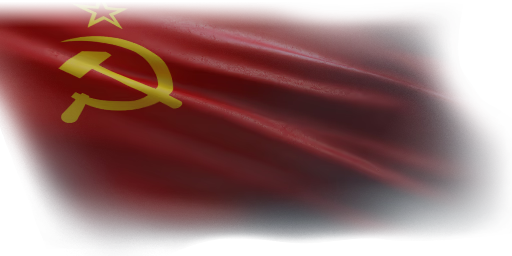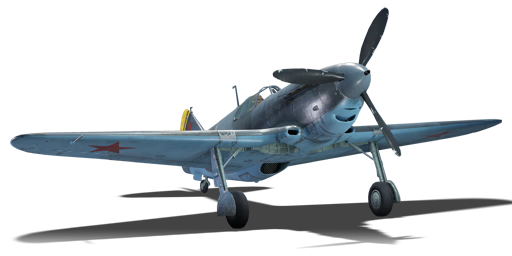

Aviation
LaGG-3-66
II
Rank
AB
3.0
RB
2.7
SB
2.7
Battle rating
USSR
Game nation
Fighter
Main role
5,600

Research
22,000

Purchase
General information
Flight performance
Max speed
at 3,300 m
591558610575 km/h
Rate of Climb
13.811.116.611.2 m/s
Turn time
21.52320.722.4 s
Max altitude
9,800 m
Takeoff Run
403 m
Landing
flaps
flaps
Take-off
flaps
flaps
Combat
flaps
flaps
Air
brake
brake
General characteristics
Crew
1 person
Engine
Length
8.8 m
Wingspan
9.8 m
Wing Loading
160 kg/m²
Weight:
Base weight
2.622.72.552.68 t
Fuel in main tanks
0.21 t (37m)
Limits:
Max Speed Limit (IAS)
700 km/h
Mach Number Limit
0.8 M
G limit
≈ -10/13 G
Flap Speed Limit (IAS)
L / T / C
280 / 414 / 440 km/h
Gear Speed Limit (IAS)
450 km/h
Offensive armament
20 mm ShVAK cannon
Ammunition
150 rounds
Fire rate
800 shots/min
One-second Burst Mass
1.29 kg
| Belt | Belt filling | Armor penetration (mm) at a distance: | |||||
|---|---|---|---|---|---|---|---|
| 10 m | 100 m | 500 m | 1000 m | 1500 m | 2000 m | ||
| FI-T/AP-I | 28 | 24 | 14 | 7 | 4 | 2 | |
| FI-T/HEF/AP-I/FI-T | 28 | 24 | 14 | 7 | 4 | 2 | |
| HEF/FI-T/AP-I | 28 | 24 | 14 | 7 | 4 | 2 | |
| FI-T | 3 | 3 | 3 | 3 | 3 | 3 | |
| AP-I/FI-T/AP-I/AP-I | 28 | 24 | 14 | 7 | 4 | 2 | |
| AP-I/HEF/HEF/FI | 28 | 24 | 14 | 7 | 4 | 2 | |
12.7 mm Berezin UBS machine gun
Ammunition
200 rounds
Fire rate
996 shots/min
One-second Burst Mass
0.79 kg
| Belt | Belt filling | Armor penetration (mm) at a distance: | |||||
|---|---|---|---|---|---|---|---|
| 10 m | 100 m | 500 m | 1000 m | 1500 m | 2000 m | ||
| T/AP/AP/IAI | 32 | 30 | 22 | 15 | 11 | 7 | |
| AP-I/API-T/IAI/IAI | 29 | 27 | 20 | 13 | 9 | 6 | |
| API-T/AP-I/AP-I/IAI | 29 | 27 | 20 | 13 | 9 | 6 | |
| AP-I(c)/AP-I/AP-I/API-T/IAI | 34 | 32 | 24 | 17 | 12 | 8 | |
| API-T | 29 | 27 | 20 | 13 | 9 | 6 | |
| AP-I/AP-I/IAI | 29 | 27 | 20 | 14 | 9 | 6 | |
Suspended armament
Setup 1
2 × 50 kg FAB-50sv (forged) bomb
Setup 2
2 × 100 kg FAB-100sv (forged) bomb
Setup 3
6 × ROS-82 rockets
Setup 4
6 × RBS-82 rockets
Economy
Repair cost
Basic → Reference
AB
657 → 824 

RB
1,300 → 1,630 

SB
1,805 → 2,263 

Crew training
6,300 

Experts
22,000 

Aces
250 

Research Aces
220,000 

Reward multiplier
AB / RB / SB
40 / 100 / 200 % 

124 % 

Total cost of modifications
10,390 

13,650 

Talisman cost
750 

Research order:
Flight performance | |
|---|---|
Survivability |
|---|
Weaponry | |
|---|---|
Rating by players
You must play more than 3 battles for the last week and more than 10 battles in a vehicle to rate it.
Like:
7
Flight performance:
Not enough ratings
Survivability:
Not enough ratings
Aerial combat:
Not enough ratings
Ground attack:
Not enough ratings
Balance:
Not enough ratings
Tips & Tricks
This space is currently empty
Do you know any interesting vehicle features?
Loading...
No articles about this vehicle yet
Become the first author and get rewards!
Write a guide, tell about interesting historical facts, make a tutorial or simply an interesting post.
No more content